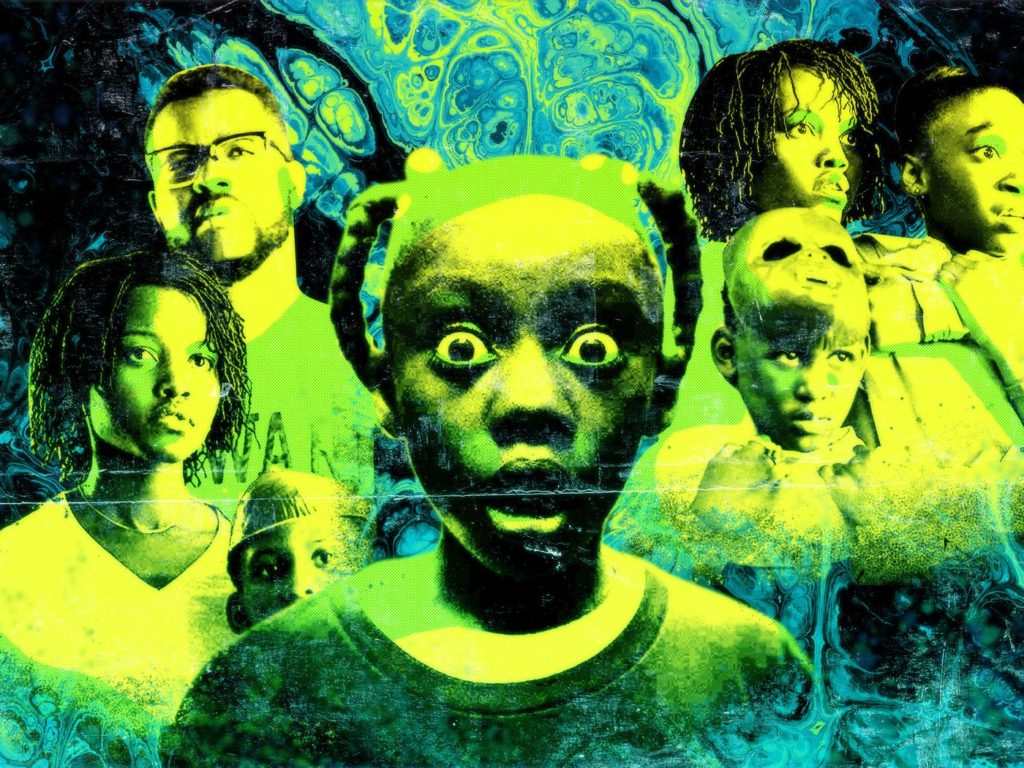Emerged from the weekend with an unbridled fear of scissors, rabbits and the Nineties rap anthem “I Got Five On It”? You’re not the only one. Us, the brain-melting new horror from Get Out director Jordan hit cinemas last Friday, attracting record audiences in the process: the film generated £53 million at the box office Stateside (the biggest opening for an original horror ever) and a further £2m in Britain. Starring , it tells the tale of a family holiday gone horrendously awry. Basically, if you thought your 2009 trip to Torquay where your parents argued the whole time, the car broke down on the A303 and the Airbnb smelled of onions was bad, well, at least you weren’t attacked by a mysterious set of home invaders who look creepily identical to you.
Like Get Out before it, Us is filled to brim with symbolism, social satire and strange imagery that lodges itself deep in your psyche, lingering long after you’ve left your local multiplex. It’s likely to be prised apart for months, as fans and critics attempt to peel (no pun intended) back its many layers. What does it all mean? Here are some theories – major spoilers ahead.
Post-traumatic stress
Familiar with the phrase “scared of your own shadow”? The film’s doppelgangers – referred to by Nyong’o’s Red as “The Tethered” – is that idiom brought to dark, distressing life. As a young girl, Adelaide has a traumatic experience in a funhouse and lives her life from that moment haunted by the event, attempting to outrun it but ultimately resigned to it one day “coming back for me”. The reveal at the end of what actually lay beneath that funhouse complicates this idea somewhat, but trauma is a theme that at the very least simmers under the surface of Us and informs Nyong’o’s performance: Red’s voice was modelled on sufferers of spasmodic dysphonia, a syndrome that causes vocal chords to spasm. “It’s a condition that’s brought about by trauma, sometimes emotional, sometimes physical and sometimes inexplicable,” she told Radio 1Xtra.

The corrosive effect of the internet
One theory, put forward on the Slashfilm podcast, suggests that the film’s underground mine shafts where the Tethered live represent the internet: endless mazes of darkness where the worst versions of ourselves roam. In 2019, those terrible proxies of ourselves are emboldened to rise to the surface, causing harm and destruction, much like in our real world. The gold-speckled escalator that provides a bridge from their world to ours remind you of anything? Because to me, it recalls the one ridden by a certain American demagogue-in-chief during the announcement of his presidential run.
America’s past
“We’re Americans,” hisses Red during the pivotal living room scene in the beach house when asked what her and her family are – a line that dares American viewers to draw a line between the film and their fractured country. The title’s not a coincidence: the word “Us” looks like “US” (the initials of United States) written down and implores Americans viewers to look inwards. The red jumpsuits worn by the Tethered are evocative of US prison jumpsuits, worn disproportionately over time by black Americans thanks to America’s institutionally racist justice system, as dealt with in documentaries like Ava DuVernay’s 13th. The Tethered aren’t meant to represent black Americans but the violence and oppression they faced: a disfigured, wounded version of itself America thought it could leave behind but has come back to haunt it (the alt-right). Considering Peele’s last film, Get Out, was a cut-throat satire of America’s bubbling covert racism in the Obama years, this would make thematic sense for the filmmaker. “America is about race. It’s always about race,” he recently told Polygon.

Immigration
The word “us” implies a “them” – rhetoric that’s defined Trump’s foreign policy throughout his presidency to date. Peele told Essence that America’s “fear of the outsider” plays a part in the film. What if those outsiders demonised by politicians actually look just like us, though? Identical, in fact?
Social mobility
Some claim Us is about privilege and wealth, with the Tethered representing society’s have-nots’ frustration and anger at being confined to “darkness” (poverty) erupting in violence. Again, the escalator depicted as connecting the below-ground and above-ground worlds is interesting here: it only allows travel one way in the film, a potential metaphor for how America’s embrace of capitalism allows wealthy people to accumulate more wealth, with little way out of the mire for people outside that elite. Abraham taking Gabe’s glasses and trying them on for himself and Dahlia trying on Kitty’s (Elisabeth Moss) lipstick are the telltale signs here, according to the likes of Reddit user.









Be the first to write a comment.